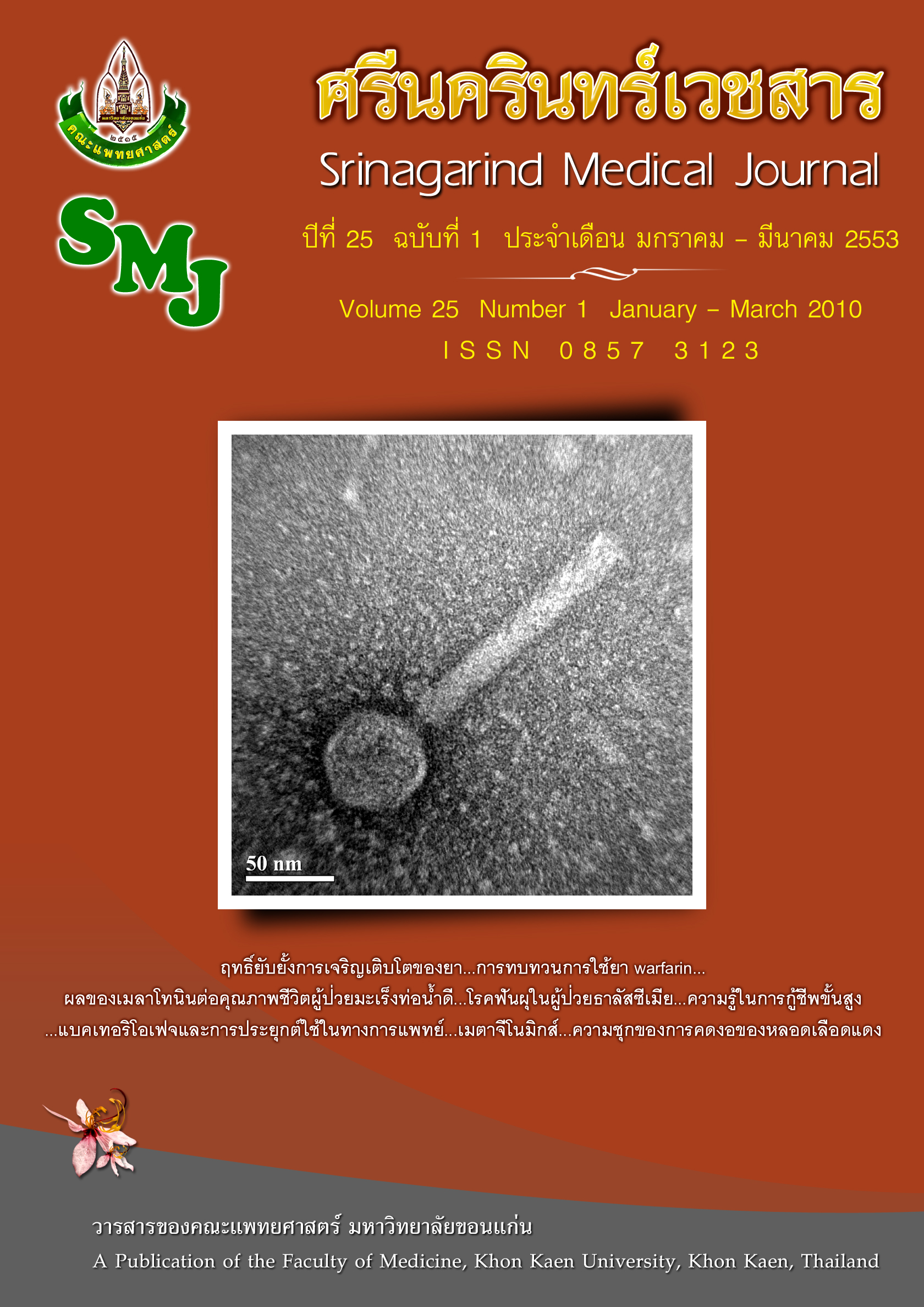Effects of Melatonin on Quality of Life of Non-resectable Cholangiocarcinoma Patients
Abstract
Background and Objective: Chemotherapy and supportive care are alternative treatments in non-resectable cholangiocarcinoma patients. The adverse events from disease and treatments have been reported which affect quality of life (QOL) of the patients. The primary objective of this study was to evaluate the effect of melatonin on QOL of non-resectable cholangiocarcinoma patients.
Methods: The study was a randomized, double-blind, placebo, controlled trial. Non-resectable cholangiocarcinoma patients were randomized by mixed-block randomization stratified by hospital and type of treatment. The treatment group received melatonin (20 mg/day); the control group received placebo. The patients started taking the study drug on the first day of the treatment and continued for three months. The QOL was assessed using Thai Functional Assessment of Cancer Therapy-Hepatobiliary (FACT-HEP) and adverse events were assessed using Common Toxicity Criteria Adverse Events (CTCAE).
Result: There were 30 patients recruited in the study, divided into 15 patients in each group. After 1 month of treatment, QOL of patients in the melatonin group decreased but not significantly while those in the control group showed significantly worse in many domains. Melatonin group had higher percentage of improvement in FACT-Hep scores than the control in both the first (20% vs 6.7%) and the second (20% vs 6.7%) month, but not significant. The median survival was longer in the melatonin group (160 vs. 130 days), but it is not significantly different. In addition, there were fewer reports of moderate to severe adverse events (Grade 3-5) in the melatonin group than placebo at two months in terms of anorexia (1 vs. 5), fatigue (1 vs. 5), nausea/vomiting (0 vs. 1), weight loss (2 vs. 9) and weight loss was greater than 5% from baseline (1 vs. 6).
Conclusion: The combination of melatonin with standard treatment did not prolong overall survival period. The melatonin treatment, however, decreased adverse events and maintained QOL of non-resectable cholangiocarcinoma patients. Further studies with larger samples are needed.
Keywords : Melatonin, Cholangiocarcinoma, Quality of Life




